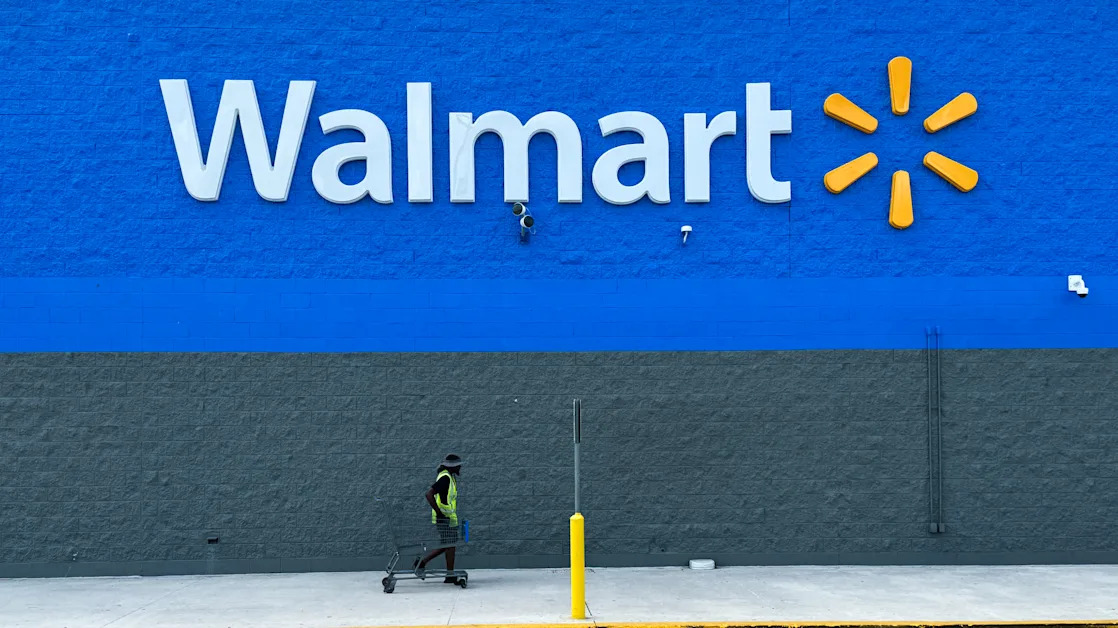Walmart, Target, Nike stocks drop as sweeping reciprocal tariffs are expected to hike consumer prices
While retailers like footwear giant Nike (
NKE
) and big box chain Walmart (
WMT
) have been prepping for months, there's no avoiding the hit from tariffs.
On Wednesday afternoon, President Donald Trump announced a baseline tariff of 10% for all countries, effective Apr. 5. Another 60 countries will receive a higher rate, effective Apr. 9.
The list of 60 include Vietnam (46%), China (34%), Indonesia (32%), and the European Union (20%). Those rates are on top of existing duties, such as a 20% duty on Chinese goods, which brings the total rate on China to 54%.
Shares of retail giants like Nike, Walmart, Target (
TGT
), and Dollar Tree (
DLTR
) are falling in after-hours trading.
"The comprehensiveness of the new tariff regime is more shocking, however, as are some of the very high tariff rates. What has been confirmed today is that there is no escape from tariffs. Every company that imports is going to have to deal with higher costs that result from this new way of conducting trade," GlobalData retail managing director Neil Saunders told Yahoo Finance.
Jonathan Gold, vice president of supply chain and customs policy at the National Retail Federation, said given the uncertainty leading up to this moment, retailers didn't have enough time to "really plan and prepare."
Mitigation tactics, like moving production outside of China, Mexico, and Canada, are no longer effective with high rates imposed on many other major exporter countries.
"The near-term impact [on retailers] would be a hit on margins because usually, tariffs are realized first before companies start to mitigate those tariff headwinds," CFRA analyst Arun Sundaram told Yahoo Finance.
Retailers will try tactics like changing sources, shifting product selection, or negotiating prices, which Sundaram said Walmart and Costco (
COST
) have been doing.
Target's chief commercial officer Rick Gomez said on the company's earnings call that it has been proactive in diversifying its supply chain, "moving things out of China to other places around the world, looking at going across Asia as well as Western Hemisphere, Guatemala, Honduras."
"The market has partly priced in tariff risks, but not the full extent," Sundaram said prior to Wednesday's announcements. "Many companies in the consumer discretionary as well as consumer staples sector are still trading at a pretty sizable premium relative to historical averages."
For example, Walmart is trading at a forward price-to-earnings ratio of 33.56.
Higher-than-expected tariffs could cause "some downside to Walmart's earnings estimates ... you could see PE multiples contract more. You could see earnings forecasts come down more," he said.
However, companies with subscription models can compete better in this environment, according to Sundaram. Think Costco, Amazon (
AMZN
), BJ's, and even Walmart+, as they can use some of the revenue from memberships to "absorb some tariff headwinds" and typically have a "more affluent customer base."
With major apparel exporters in southeast Asia like Vietnam being hit by high tariffs, specialty apparel, footwear, and other retailers will be hard pressed to mitigate the full impact.
Shares of Tapestry (
TPR
), Abercrombie & Fitch (
ANF
), Kohl's (
KSS
), and Macy's (
M
) are all dropping in after-hours trading.
Lululemon (
LULU
) shares are down more than 26% year to date after
CEO Calvin McDonald said
on its earnings call last week that shoppers are tightening their belts.
"Consumers are spending less due to increased concerns about inflation and the economy," which led to slower traffic at the athleisure company and across the retail industry, he said
Nike also
warned of a hit from tariffs.
CFO Matthew Friend said on its earnings call that the company expects fourth quarter gross margins to decline 400 to 500 basis points, which includes the estimated impact of tariffs on China and Mexico, but not the reciprocal tariffs.
Now, the question turns to how much companies can absorb and what costs they'll pass along to customers.
On Wednesday, the National Retail Federation forecast that retail sales this year will grow between 2.5% and 3.7%, compared to 3.6% in 2024.
"While we do expect slower growth, consumer fundamentals remain intact, supported by low unemployment, slow but steady income growth, and other household finances, consumer spending is not unraveling," NRF chief economist Jack Kleinhenz said.
But
consumer sentiment
, released Friday from the University of Michigan, fell to its lowest level since November 2022.
Other signs of consumer stress have begun to emerge. Synchrony Financial, a financial company that issues credit cards with retailers, indicated that
consumer spending has slowed
. Last month, the Federal Reserve Bank of New York reported credit card and auto delinquencies
edged slightly higher
.
"For perishable goods, you're going to see those price increases relatively quickly at the grocery store," said Ernie Tedeschi of Yale University. Durable goods like "electronics, appliances, automobiles" could take a few months to hike price, as companies sell through their inventory.
Ali Furman, PwC US consumer markets industry leader, said many retailers and hard goods manufacturers were "importing at volumes that were much higher than they have historically in anticipation of tariffs." The additional cost of that alone "is likely to hit the consumer wallet sometime in the late spring, early summer."
—
Brooke DiPalma is a senior reporter for Yahoo Finance. Follow her on X at @
BrookeDiPalma
or email her at bdipalma@yahoofinance.com.
Click here for all of the latest retail stock news and events to better inform your investing strategy
